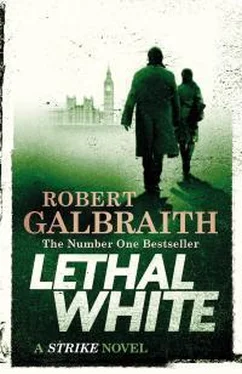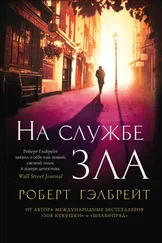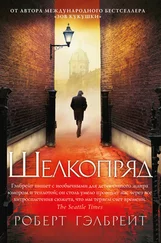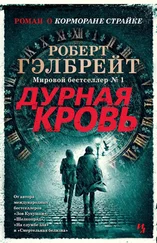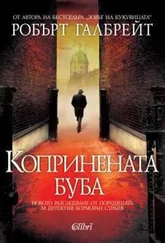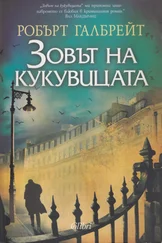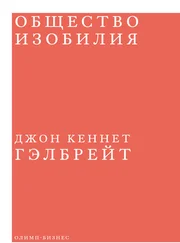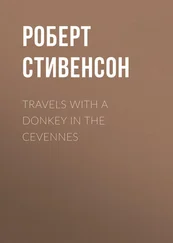‘Checking the diary, Venetia . . . He’ll be at DCMS until eleven, but then he’s in meetings all afternoon. Do you want me to call him? He could probably see you straight away if you hurry.’
So Robin replaced her mobile, notebook and pen in her bag, gulped down the last of her coffee and hurried off to the Department for Culture, Media and Sport.
Chiswell was pacing up and down his office, speaking on the phone, when Robin arrived outside the glass partition. He beckoned her inside, pointed to a low leather sofa at a short distance from his desk, and continued to talk to somebody who appeared to have displeased him.
‘It was a gift,’ he was saying distinctly into the receiver, ‘from my eldest son. Twenty-four-carat gold, inscribed Nec Aspera Terrent. Bloody hell’s bells!’ he roared suddenly, and Robin saw the heads of the bright young people just outside the office turning towards Chiswell. ‘It’s Latin! Pass me to somebody who can speak English ! Jasper Chiswell. I’m the Minister for Culture . I’ve given you the date . . . no, you can’t . . . I haven’t got all bloody day—’
Robin gathered, from the side of the conversation that she could hear, that Chiswell had lost a money clip of sentimental value, which he thought he might have left at a hotel where he and Kinvara had spent the night of her birthday. As far as she could hear, the hotel staff had not only failed to find the clip, they were showing insufficient deference to Chiswell for having deigned to stay at one of their hotels.
‘I want somebody to call me back. Bloody useless,’ muttered Chiswell, hanging up and peering at Robin as though he had forgotten who she was. Still breathing heavily, he dropped down on the sofa opposite her. ‘I’ve got ten minutes, so this had better be worthwhile.’
‘I’ve got some information on Mr Winn,’ said Robin, taking out her notebook. Without waiting for his response, she gave him a succinct summary of the information she had gleaned from Sir Kevin.
‘ . . . and,’ she concluded, barely a minute and a half later, ‘there may be further impropriety on Mr Winn’s part, but that information is allegedly held by Dr Elspeth Curtis-Lacey, whose number is unlisted. It shouldn’t take us long to find a way of contacting her, but I thought,’ Robin said apprehensively, because Chiswell’s tiny eyes were screwed up in what might have been displeasure, ‘I should bring you this immediately.’
For a few seconds he simply stared at her, his expression petulant as ever, but then he slapped his thigh in what was clearly pleasure.
‘Well, well, well,’ he said. ‘He told me you were his best. Yerse. Said so.’
Pulling a crumpled handkerchief out of his pocket he wiped his face, which had become sweaty during his phone call with the unfortunate hotel.
‘Well, well, well,’ he said again, ‘this is turning out to be a rather good day. One by one, they trip themselves up . . . so Winn’s a thief and a liar and maybe more?’
‘Well,’ said Robin cautiously, ‘he can’t account for the twenty-five thousand pounds, and he’s certainly promised things he can’t deliver . . . ’
‘Dr Elspeth Curtis-Lacey,’ said Chiswell, following his own train of thought. ‘Name’s familiar . . . ’
‘She used to be a Liberal Democrat councillor from Northumberland,’ said Robin, who had just read this on the Level Playing Field’s website.
‘Child abuse,’ said Chiswell suddenly. ‘That’s how I know her. Child abuse. She was on some committee. She’s a bloody crank about it, sees it everywhere. Course, it’s full of cranks, the Lib Dems. It’s where they congregate. Stuffed to the gunnels with oddballs.’
He stood up, leaving a smattering of dandruff behind him on the black leather, and paced up and down, frowning.
‘All this charity stuff’s bound to come out sooner or later,’ he said, echoing Sir Kevin’s wife. ‘But, my Christ, they wouldn’t want it to break right now, not with Della up to her neck in the Paralympics. Winn’s going to panic when he finds out I know. Yerse. I think this might well neutralise him . . . in the short term, anyway. If he’s been fiddling with children, though—’
‘There’s no proof of that,’ said Robin.
‘—that would stymie him for good,’ said Chiswell, pacing again. ‘Well, well, well. This explains why Winn wanted to bring his trustees to our Paralympian reception next Thursday, doesn’t it? He’s clearly trying to keep them sweet, stop anyone else deserting the sinking ship. Prince Harry’s going to be there. These charity people love a royal. Only reason half of them are in it.’
He scratched his thick mop of grey hair, revealing large patches of underarm sweat.
‘Here’s what we’ll do,’ he said. ‘We’ll add his trustees to the guest list and you can come too. Then you can corner this Curtis-Lacey, find out what she’s got. All right? Night of the twelfth?’
‘Yes,’ said Robin, making a note, ‘Fine.’
‘In the meantime, I’ll let Winn know I know he’s had his fingers in the till.’
Robin was almost at the door when Chiswell said abruptly:
‘You don’t want a PA’s job, I suppose?’
‘Sorry?’
‘Take over from Izzy? What does that detective pay you? I could probably match it. I need somebody with brains and a bit of backbone.’
‘I’m . . . happy where I am,’ said Robin.
Chiswell grunted.
‘Hmm. Well, perhaps it’s better this way. I might well have a bit more work for you, once we’ve got rid of Winn and Knight. Off you go, then.’
He turned his back to her, his hand already on the phone.
Out in the sunshine, Robin took out her mobile again. Strike still hadn’t called, but Matthew had texted the name of a pub in Mayfair, conveniently close to Sarah’s work. Nevertheless, Robin was now able to contemplate the evening with slightly more cheerfulness than she had felt prior to her meeting with Chiswell. She even started humming Bob Marley as she walked back towards the Houses of Parliament.
He told me you were his best. Yerse . Said so.
26
I am not so entirely alone, even now. There are two of us to bear the solitude together here.
Henrik Ibsen, Rosmersholm
It was four in the morning, the hopeless hour when shivering insomniacs inhabit a world of hollow shadow, and existence seems frail and strange. Strike, who had fallen into a doze, woke abruptly in the hospital chair. For a second, all he felt was his aching body and the hunger that tore at his stomach. Then he saw his nine-year-old nephew, Jack, who lay motionless in the bed beside him, jelly pads over his eyes, a tube running down his throat, lines coming out of neck and wrist. A bag of urine hung from the side of the bed, while three separate drips fed their contents into a body that appeared tiny and vulnerable amid the softly humming machines, in the hushed, cavernous space of the intensive care ward.
He could hear the padding of a nurse’s soft shoes somewhere beyond the curtain surrounding Jack’s bed. They hadn’t wanted Strike to spend the night in the chair, but he had dug in and his celebrity, minor though it was, combined with his disability, had worked in his favour. His crutches stood propped against the bedside cabinet. The ward was overwarm, as hospitals always were. Strike had spent many weeks in a series of iron beds after his leg had been blown off. The smell transported him back to a time of pain and brutal readjustment, when he had been forced to recalibrate his life against a backdrop of endless obstacles, indignities and privations.
The curtain rustled and a nurse entered the cubicle, stolid and practical in her overalls. Seeing that he was awake, she gave Strike a brief, professional smile, then took the clipboard off the end of Jack’s bed and went to take readings from the screens monitoring his blood pressure and oxygen levels. When she had finished, she whispered, ‘Fancy a cup of tea?’
Читать дальше
